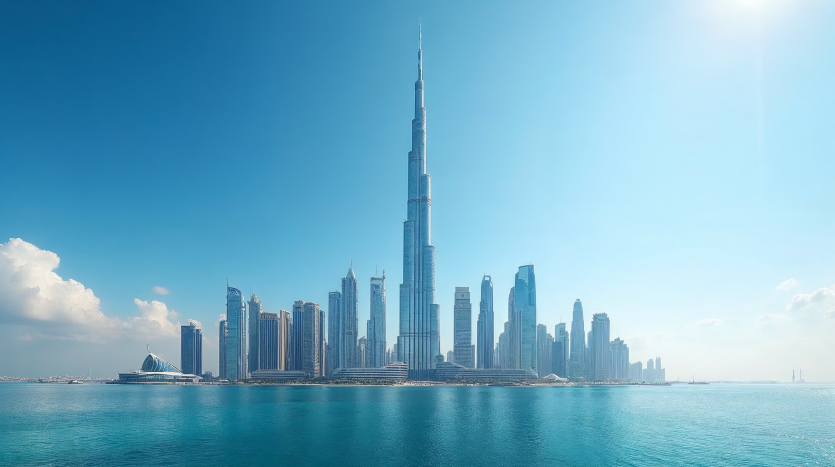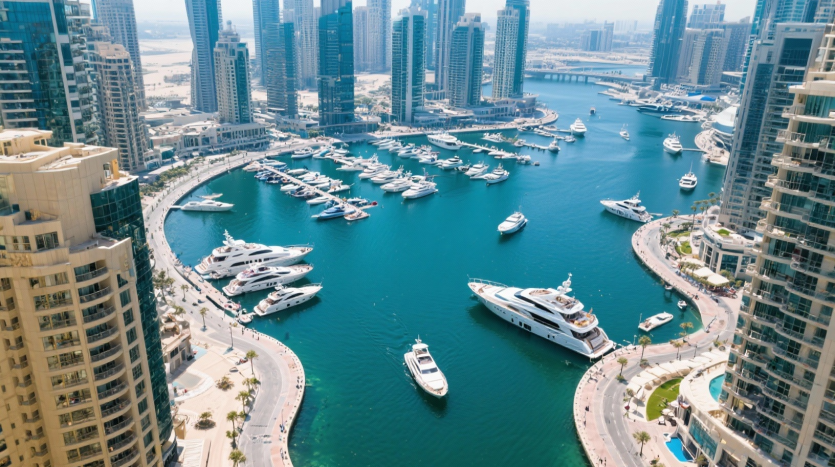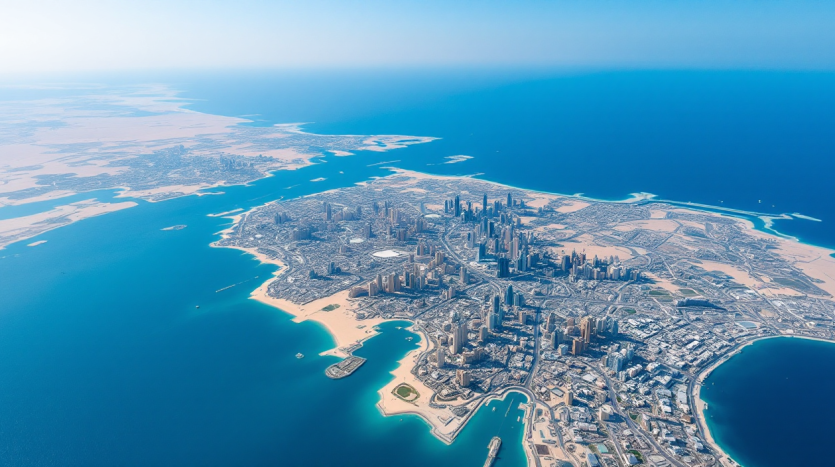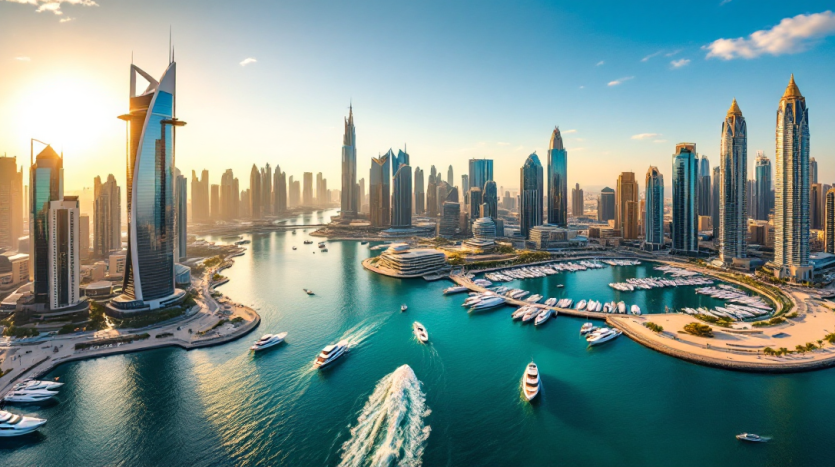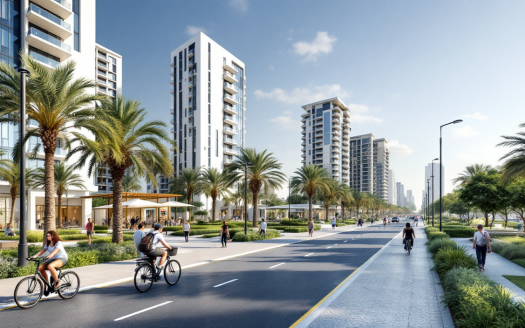
Beyond Residency: The Global Investor’s Guide to Buying Property in Dubai in 2025
The apartment had never been lived in, but it already had a story. Bought off-plan by a Singaporean investor during a virtual open house in 2021, the glass-wrapped one-bedroom in Dubai Marina now earns steady returns through short-term rentals. Its owner has never held a UAE residency visa. He visits once a year, if that. His profits, however, are deposited each month — tax-free.
This is the quiet revolution reshaping Dubai’s property market: ownership without residency. A decade ago, buying a home here required a degree of physical presence and bureaucratic patience. In 2025, global investors can buy, lease, and resell property entirely remotely — a seamless process built on digital registration systems, verified escrow accounts, and freehold legislation that rivals any global hub.
Why it matters now
For decades, Dubai’s real estate story has been told through cranes and skyline shots. But the real innovation is administrative. By separating ownership rights from residency requirements, the emirate has unlocked a new wave of international capital — from Hong Kong to Hamburg, Lagos to London.
In a world of tightening tax rules and rising interest rates, Dubai offers what few financial centers can: zero property tax, no income tax on rental earnings, and a currency pegged to the U.S. dollar. Add double-digit returns in certain neighborhoods and you have a market that speaks fluently to both the risk-averse and the opportunistic.
The legal foundation: Freehold for all
The transformation began in 2002, when Dubai opened “freehold zones” to non-GCC buyers — a policy shift that turned the city into an international property exchange. Foreigners could, for the first time, own land and apartments outright.
Today, those zones have expanded into nearly every district recognizable on the global map of Dubai: Downtown Dubai, Palm Jumeirah, Business Bay, Dubai Marina, and Jumeirah Village Circle (JVC). Ownership in these areas is secure, transferable, and inheritable, subject to the Dubai Land Department (DLD)’s registration rules.
Buyers need only a passport and proof of funds. Residency, once a prerequisite, is now optional — though ownership can become a path toward longer-term visas through the Golden Visa initiative.
The Golden Visa connection
Property has quietly become Dubai’s most reliable immigration tool. Under current guidelines, investors purchasing property valued at AED 2 million or more may qualify for a 10-year renewable Golden Visa, which can extend to spouses and dependents. The visa is not automatic, but the link between bricks, mortar, and mobility has drawn attention from wealth managers across Asia and Europe.
For many non-residents, property investment is both an asset play and a strategic foothold — a chance to secure a Plan B in an era of global uncertainty.
Inside the buying process
For overseas investors, the steps are now remarkably clear — a reflection of Dubai’s push for transparency.
First, the investor defines intent: income, appreciation, or lifestyle. This distinction determines everything from area selection to property type. Short-term rental hotspots like Dubai Marina and Downtown cater to yield-focused buyers, while Palm Jumeirah and JVC appeal to those seeking family-oriented or long-term capital growth.
Next comes due diligence. All buyers, resident or not, must transact through a RERA-certified agent — a safeguard against fraud and misinformation. Documents are minimal: a valid passport, proof of funds, and a Memorandum of Understanding (MoU) outlining the sale terms.
Once the MoU is signed, the buyer places a 10% deposit in escrow, requests a No Objection Certificate (NOC) from the developer, and pays the 4% DLD transfer fee plus administrative costs. Transfers occur at the DLD office or via digital registration portals that now support remote transactions.
In total, the process can be completed in under a week — faster, in some cases, than securing a lease in London or New York.
Where non-residents are buying
The geography of foreign capital in Dubai tells a story of shifting appetite.
Dubai Marina remains the entry point — cosmopolitan, familiar, and liquid. It offers average yields of 6–7%, driven by short-term rentals and corporate tenants. Downtown Dubai, anchored by the Burj Khalifa, attracts wealthier buyers seeking long-term appreciation. Palm Jumeirah continues to symbolize luxury, with beachfront apartments commanding global prices and global tenants.
But the quiet favorite among non-residents is Jumeirah Village Circle (JVC). Once overlooked, the area has matured into a community of mid-rise apartments, townhouses, and serviced residences. Its rental yields often exceed 7%, and its affordability provides an accessible entry point for first-time overseas investors.
Common pitfalls to avoid
The simplicity of Dubai’s system can obscure its nuances.
Some non-resident buyers fail to verify a project’s developer or RERA registration, leading to complications with off-plan units. Others purchase in areas not classified as freehold, only to discover that full ownership rights don’t apply.
There are also recurring costs to consider: service charges, maintenance fees, and management commissions. For those renting out their property, these can erode returns if not properly forecast.
Perhaps the most overlooked variable is time. While handover timelines have improved dramatically, global supply chain pressures can delay off-plan projects. Investors relying on rental income should plan for potential delays, and verify delivery schedules directly with the developer and DLD.
A market built for distance
The pandemic-era digitization of Dubai’s real estate sector has become permanent. Remote registration, escrow-linked digital payments, and DLD’s blockchain-based title verification have eliminated the need for most buyers to travel.
Real estate agencies now specialize in “armchair investing” — from virtual viewings to e-signed purchase contracts. International buyers can even secure property management and rental licensing remotely, turning Dubai into a truly borderless investment landscape.
The global context
According to DLD data, more than 45% of all property transactions in 2024 involved non-resident buyers — a record figure reflecting the city’s growing appeal as a capital preservation hub. Analysts at Khaleej Times note that international demand has helped sustain price stability even amid rapid development, suggesting a maturing market rather than a speculative one.
As the UAE deepens economic ties with Asia, Africa, and Europe, property investment increasingly doubles as soft diplomacy — a stable asset in a politically neutral jurisdiction.
The long view
Dubai’s non-resident investment model is not without risks — the market remains cyclical, and speculative buying can inflate prices. Yet the infrastructure that underpins it — digital, legal, and logistical — has turned property investment into one of the most frictionless global plays.
For the investor in Singapore, the apartment in Dubai Marina is more than a source of yield. It is a symbol of how geography and ownership have quietly decoupled. In a world where access and mobility define wealth, Dubai offers something both radical and familiar: the freedom to own, without the need to belong.
Sources:
Khaleej Times
Gulf News

